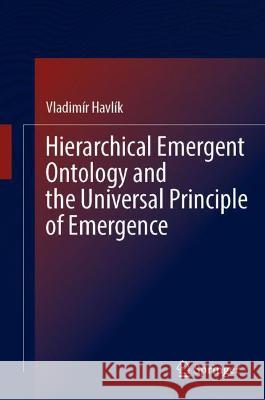Hierarchical Emergent Ontology and the Universal Principle of Emergence » książka
topmenu
Hierarchical Emergent Ontology and the Universal Principle of Emergence
ISBN-13: 9783030981471 / Angielski / Twarda / 2022 / 272 str.
Hierarchical Emergent Ontology and the Universal Principle of Emergence
ISBN-13: 9783030981471 / Angielski / Twarda / 2022 / 272 str.
cena 402,53
(netto: 383,36 VAT: 5%)
Najniższa cena z 30 dni: 385,52
(netto: 383,36 VAT: 5%)
Najniższa cena z 30 dni: 385,52
Termin realizacji zamówienia:
ok. 16-18 dni roboczych.
ok. 16-18 dni roboczych.
Darmowa dostawa!
Kategorie BISAC:
Wydawca:
Springer
Język:
Angielski
ISBN-13:
9783030981471
Rok wydania:
2022
Ilość stron:
272
Waga:
0.55 kg
Wymiary:
23.39 x 15.6 x 1.6
Oprawa:
Twarda
Wolumenów:
01
Dodatkowe informacje:
Wydanie ilustrowane











